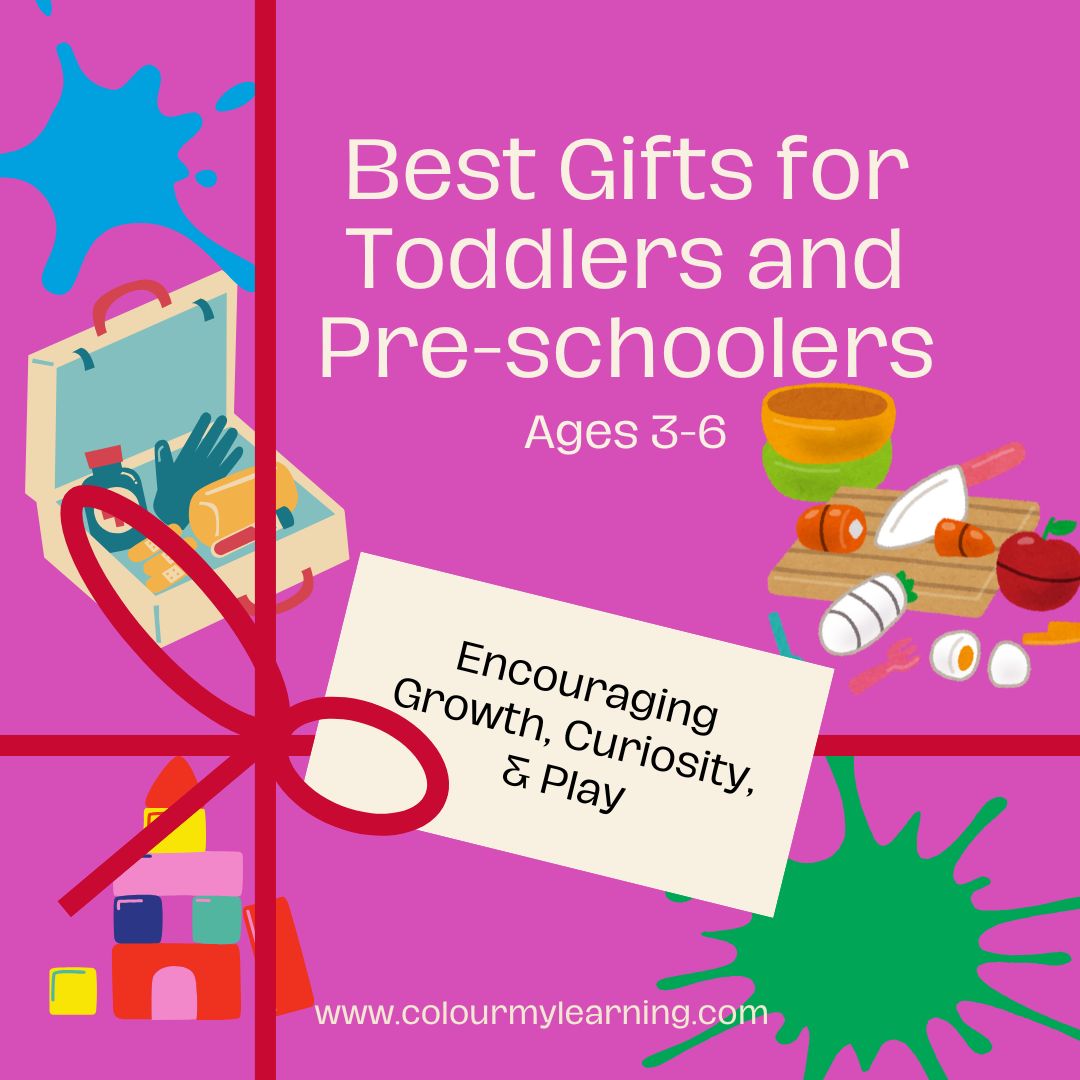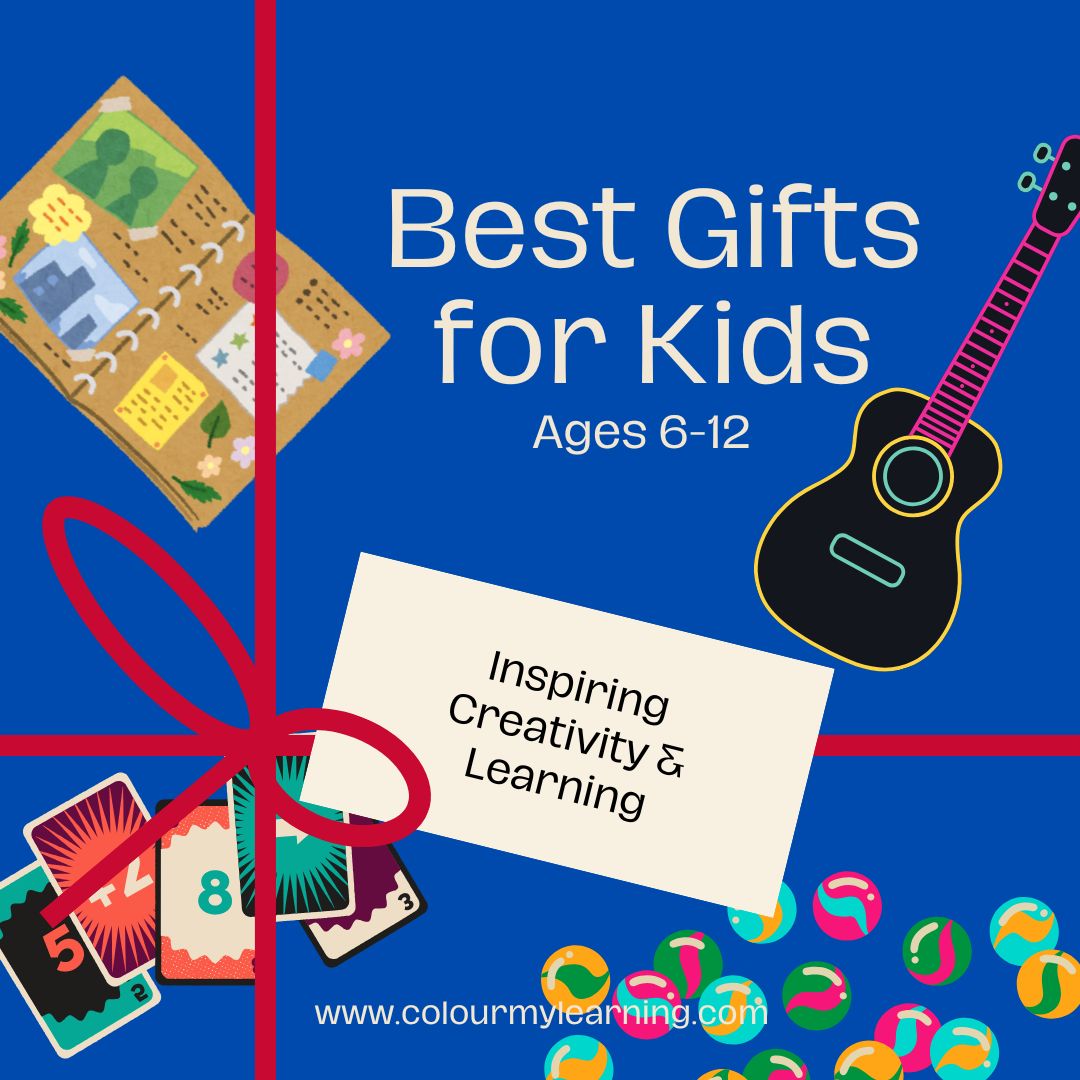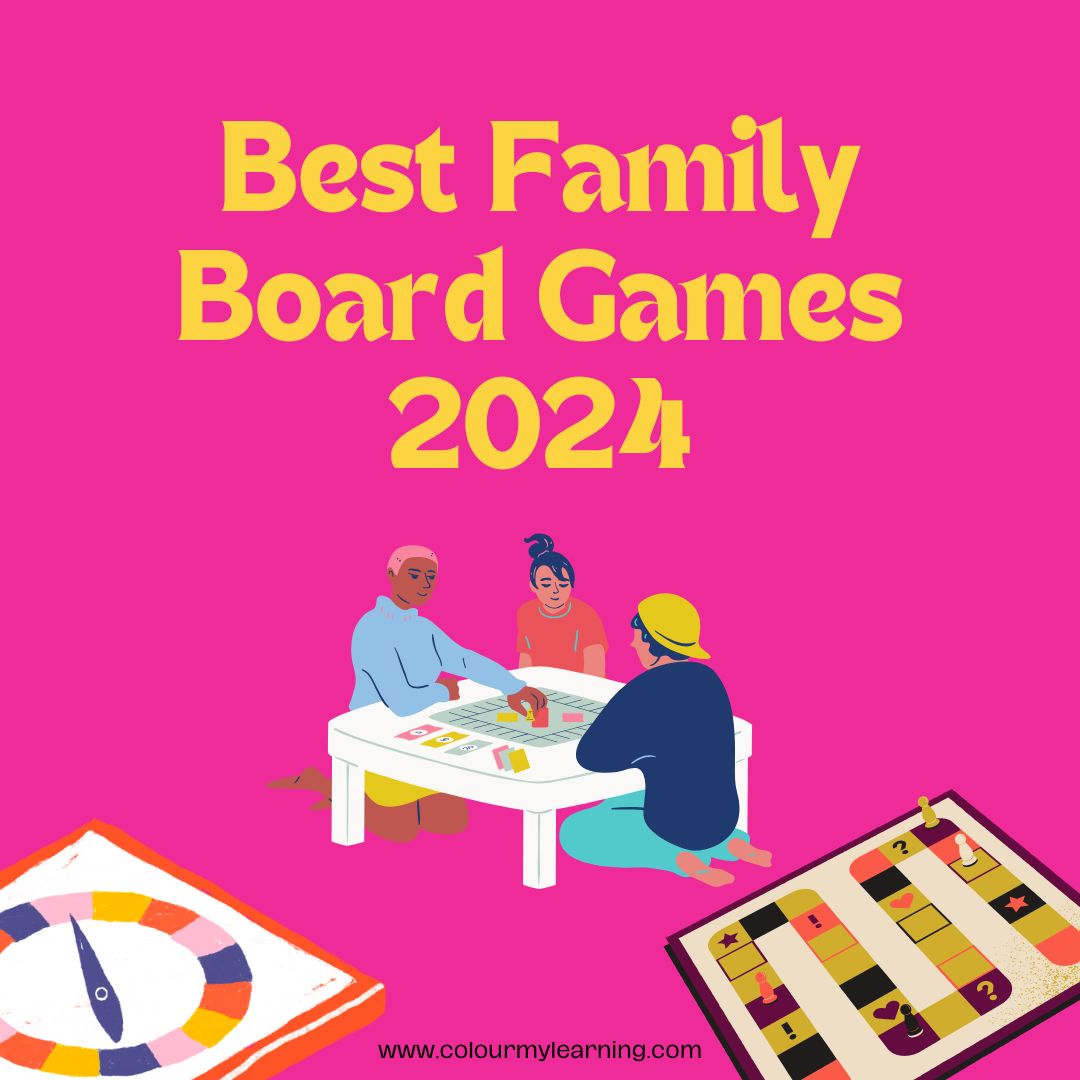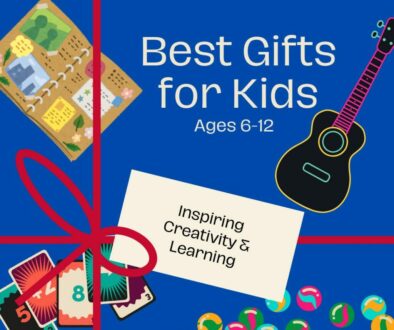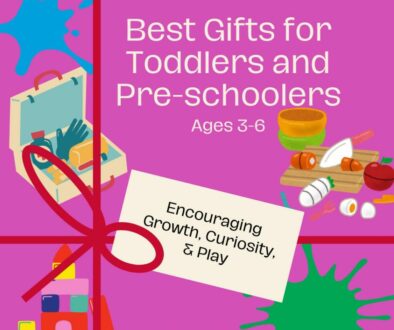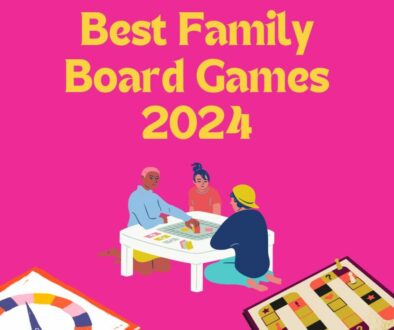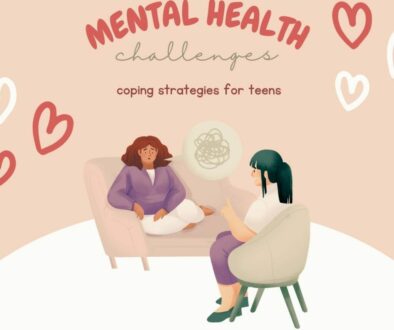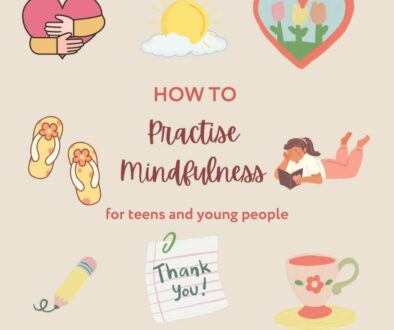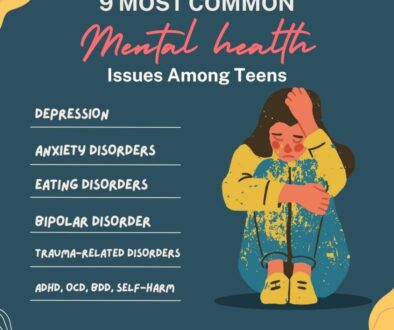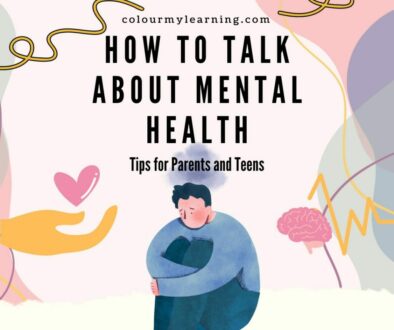How Music Enhances a Child’s Learning and Development
In one way or another, we feel connected to music. It can be a favorite song that takes you back in time with intense nostalgia, your old guitar with rusty strings that somehow still manages to make a sound or a beloved music box that slightly creeps you out, but you just can’t bring yourself to throw it away. Music is a powerful and integral part of our lives and culture that enables us to express emotions and engage with others around us.
Does music play a beneficial role in child's development? Here's what I learned about it: Share on XSince I have had a baby, Humpty Dumpty and Baa Baa Black Sheep have made a major comeback in my life. When my son is acting out or is colicky, these two nursery rhymes magically soothe and calm him down. I have no idea why, perhaps it’s the tune, or maybe it’s the rhythmical repetition, but something seems to have an effect on his brain. That got me wondering… does music play a beneficial role in child’s development? Here’s what I learned about it:

Does Learning a Musical Instrument in Childhood Have Any Benefits?
As a child, I loved pianos and hitting the keys on them. I have no idea if I had a special gift, but I often imagined myself as a world-famous, celebrated pianist. My parents, however, didn’t pay any heed to it and I was sent off to college to pursue realistic goals and practical opportunities. I wonder how they would feel now if I show them the latest study on music conducted by Northwestern University…
According to their research, engaging in music helps a child develop skills which are quite difficult to achieve from any other activity. For instance, if a child starts playing an instrument before the age of seven, his neurons are likely to show a strong connection between right and left hemispheres of brain. In simple words, music supports growth and development of every part of human brain.
Moreover, compared to people of their age group who had no musical training, people who played an instrument for even just a few years in childhood had enhanced brain responses to unfamiliar frequencies and complex sounds. If they hadn’t had the training, they might not had been able to detect the sounds at all. The neurons are well-connected thanks to musical training. Eventually, it also leads to great performances academically.
The real advantage is that even if music lessons did not continue to the upper professional levels, the benefits were still significant. If nothing else, childhood musicians certainly become better listeners and that’s rare nowadays.
Music supports growth and development of every part of human brain! Share on XHow Music Strengthens Your Child’s Learning and Development
1. Improved Focus and Memory
From learning foreign languages to bringing back memories in Alzheimer’s patients, it has been debated upon several times that music enhances memory and brain activity. Many experimental studies conducted on babies and children to look into the effects of music on their brains. The brain scans of children with musical training revealed thicker brain regions associated with listening and self-awareness.
Laurel Trainor, the director Institute for Music and the Mind at McMaster University in Ontario, Canada, states in one of her studies that musical training with peers is highly influential and it can alter brain’s auditory cortex. For instance, performing during a concert or an orchestra, high levels of concentration, memory and coordination are required. Musical training in a team can help a child acquire these skills. Not only will it be beneficial for a musical career, but such skills will undoubtedly, come handy in all fields of life.
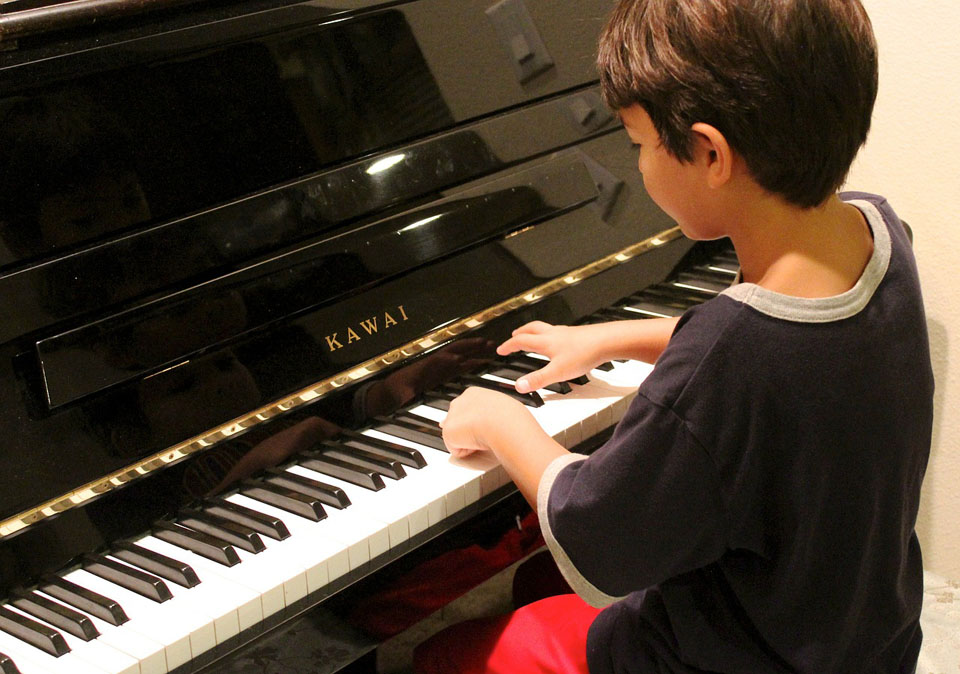
2.Superior Fine Motor Skills
Tapping of feet and swaying to music is a natural response. Even before they can understand words and gestures, infants learn to recognize musical notes. From lullabies to dancing, parents often use these tones and melodies to communicate with them. Dancing to their favorite song can help a toddler develop their motor skills. Dancing is only the initial step. Later in life, music nurtures fine motor skills. Studies have shown that kids who received training in playing piano excelled in motor proficiency test and motor sequencing tasks. In the long run, musically-trained children are better at synchronization and coordination.
Musically-trained children are better at synchronization and coordination. Share on X3. Enhanced Visuo-spatial Ability
Dr. Frances Rauscher and Gordon Shaw, a psychologist and neuro-scientist respectively, conducted research on preschoolers. In their study, it was concluded that students who took music lessons had better reasoning and solving skills as compared to their classmates who chose computer lessons instead.
Whether grown-up or child, music, particularity classical, improves spatial reasoning. In yet another study it was observed that after playing a few classical notes, adults, and kids alike solved puzzles more quickly. How come? It is because visuo-spatial ability and classical music stimulate the same neurons in brain. Keep in mind that listening to music doesn’t have the same effect as playing it!
Listening to music doesn't have the same effect as playing it! Learn more... Share on X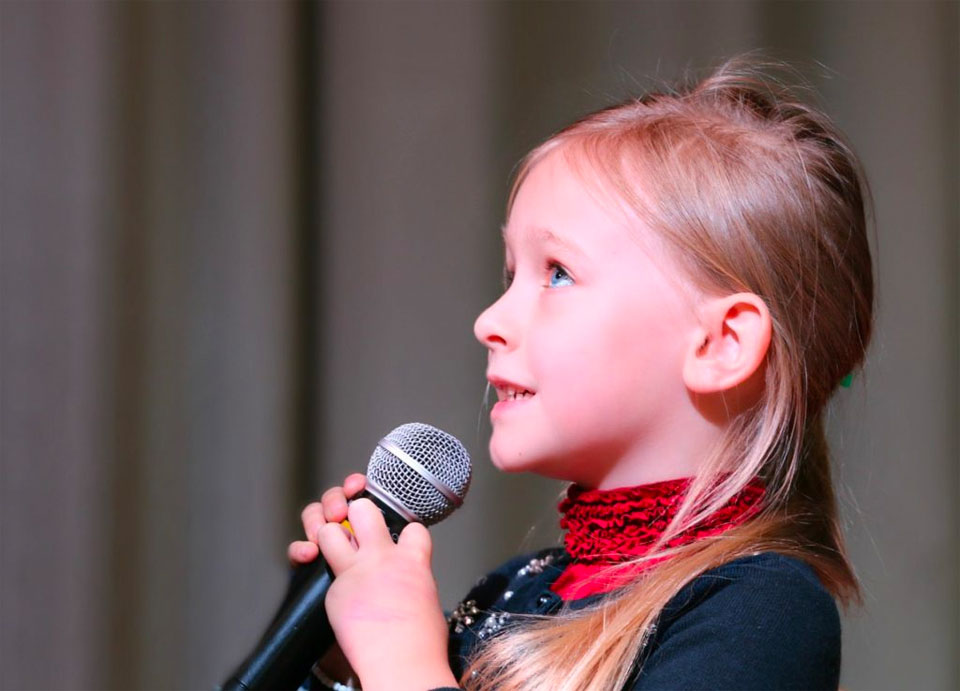
4. Polished Literacy Skills
When a child takes a music lesson, he or she learns to process different types of complex sounds which in turn improves their listening skills as well as language skills. To play certain instruments, they must learn to read notes and play them accordingly.
Musical training allows them to differentiate between pitches and frequencies which an otherwise inexperienced person wouldn’t be able to do so. That’s called neurophysiological distinction. Because sound and speech use the same pathway in the brain, music boosts child’s overall literacy skills.
Here is how music boosts child's overall literacy skills. Share on X5. Better Hand-eye Coordination
When a child has to read musical notes and play them at the same time, they must work on their hand-eye coordination. Over time, they grasp it and manage to shorten the timeframe between looking at the sheet music and playing the notes. Everything counts here – It is an amalgamation of literacy skills, memory, fine motor skills and spatial reasoning.
Of course, this enhanced hand-eye coordination, does not translate to it’s sporty counterpart, a good musician is not necessarily going to be better at catching or throwing a ball.
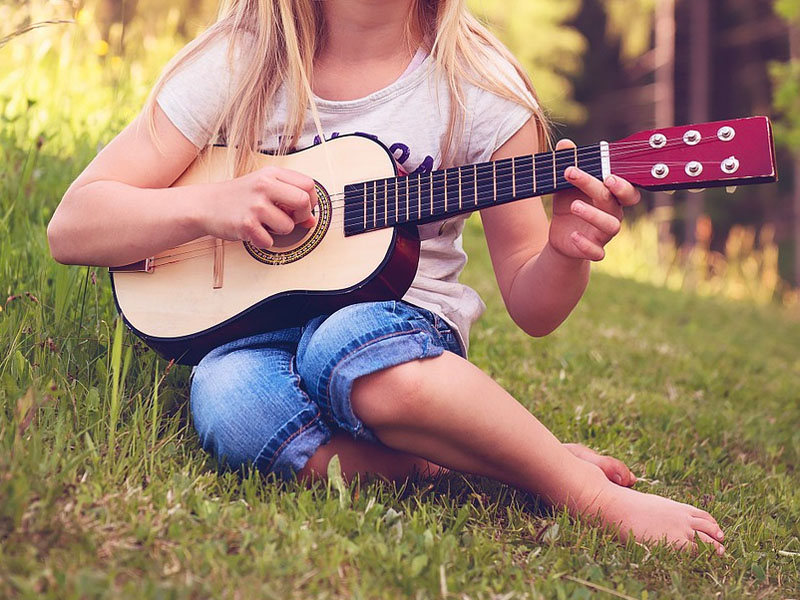
6. Strong Teamwork
Many music lessons require dedicated teamwork, especially in orchestras or chamber music groups. All the members need to coordinate with each other and build camaraderie. If not, the whole performance will be ruined, and it will create havoc. Teamwork can help them become better more understanding individuals which will help them both personally and professionally.
Of course, in every music group setting, there is a significant requirement, at the same time to not only perfect and pay attention to what your own notes are, but in order to perform as a united whole, it is important also to be able to focus on the conductor (in an orchestra setting) and to listen and pay attention to what your team-mates are playing.

7. Enhancing Empathy
Music connects humans. It is one of main forms of expressing emotions. When you are gloomy, and you want to let the whole world know, you play the saddest heartbreak song and one of your friends come forward to help you out of your depression. A year-long research showed that children, between the ages of 8 to 11 years, those who engaged in music activities on regular basis were more compassionate than their peers. They learned to recognize facial expression, emotions and feelings and were more able to respond accordingly.
Music connects humans. It is one of main forms of expressing your emotions Share on XTo learn music, your kid doesn’t have to be a prodigy, nor do you have to force them to perform the violin at every opportunity, although if that is what they desire, certainly encourage them. From a young age, encourage them to try out different musical instruments. Hand them a toy xylophone with sticks and musical sheet and let them figure out how to play it.
If they are interested, you can enroll them in a music class where they can familiarize themselves with different instruments. Allow them to be creative – let them sing at the top of their lungs and let them beat the drums.
Piano, violin, cello, guitar…there is no end to musical learning opportunities, however, if traditional music lessons and instruments are a big stretch on a tight budget, don’t knock the simple recorder, or the melodic ukulele. Both can be quite serious instruments, big on possibilities and easier on the budget, not to mention a ton of lessons already easily available on Youtube.
Whether they end up pursuing music professionally or not, children who learn music, even if just for a couple of years, will definitely acquire a host of beneficial skills that will take them a long way!
